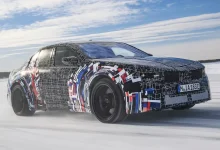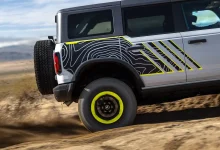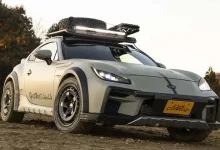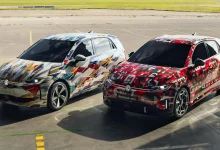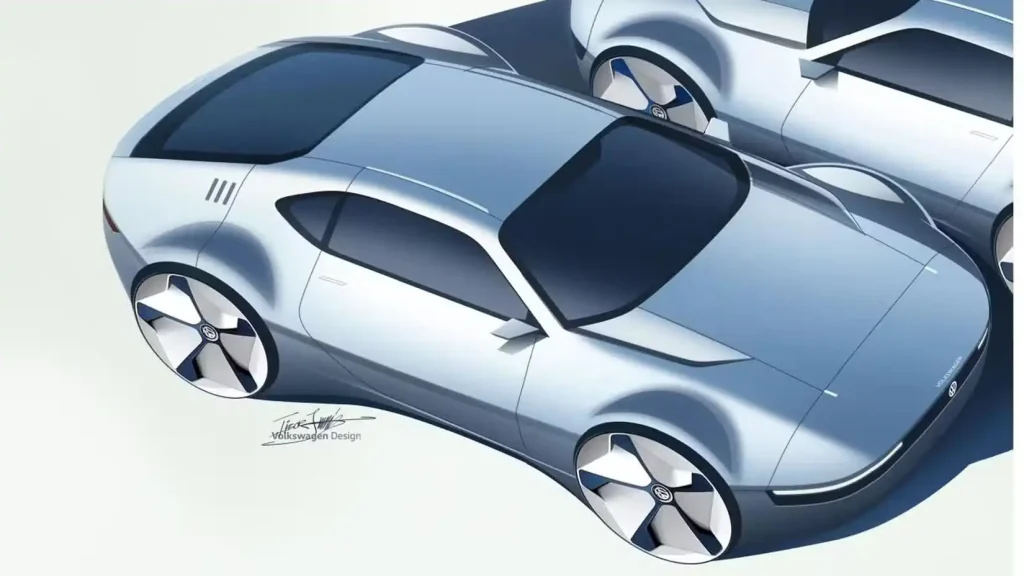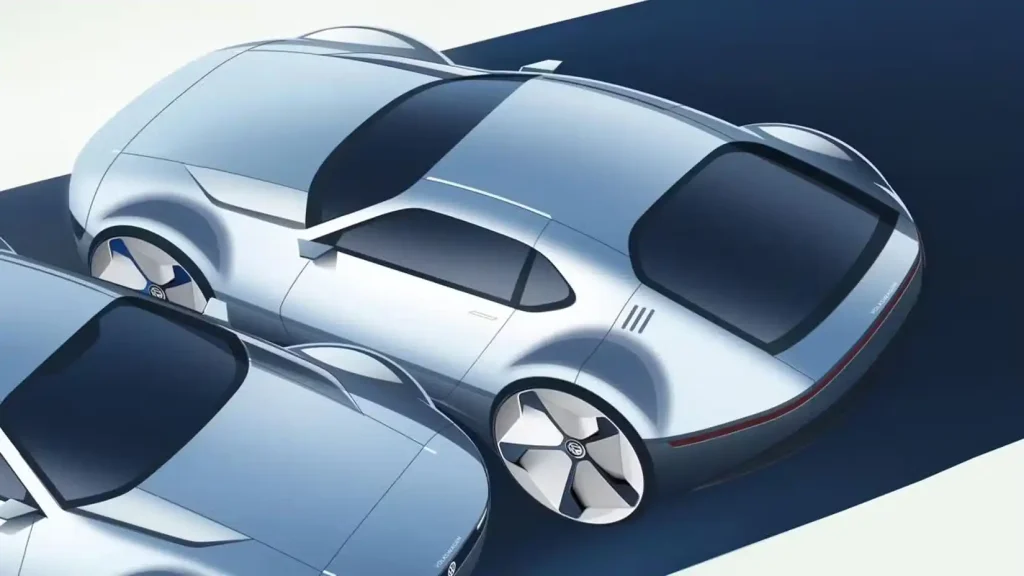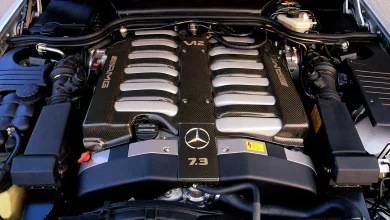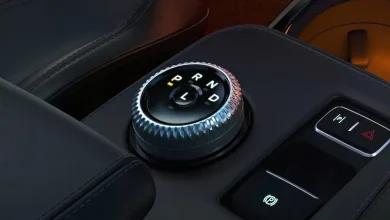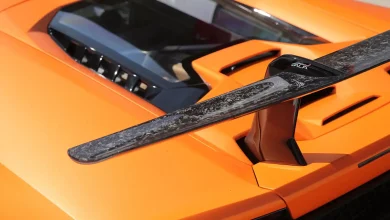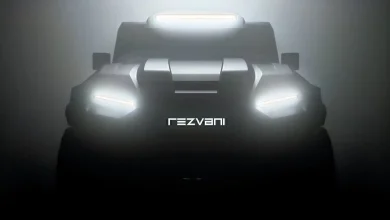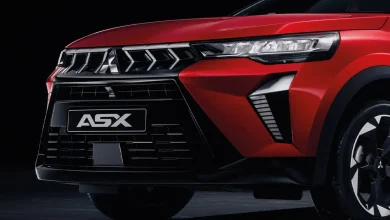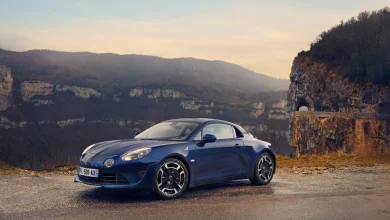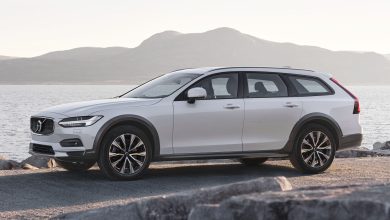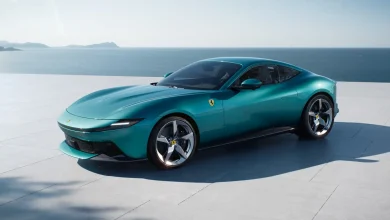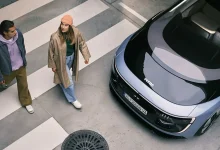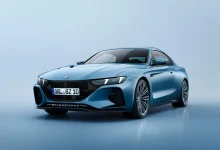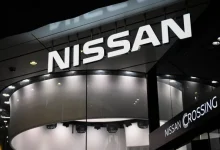Volkswagen Passed on This Sleek Electric Sports Car—and Gave Us the ID.4 Instead
VW was once rumored to be developing an electric sports car in the late 2010s, and newly revealed official design sketches offer a glimpse of what it might have been.
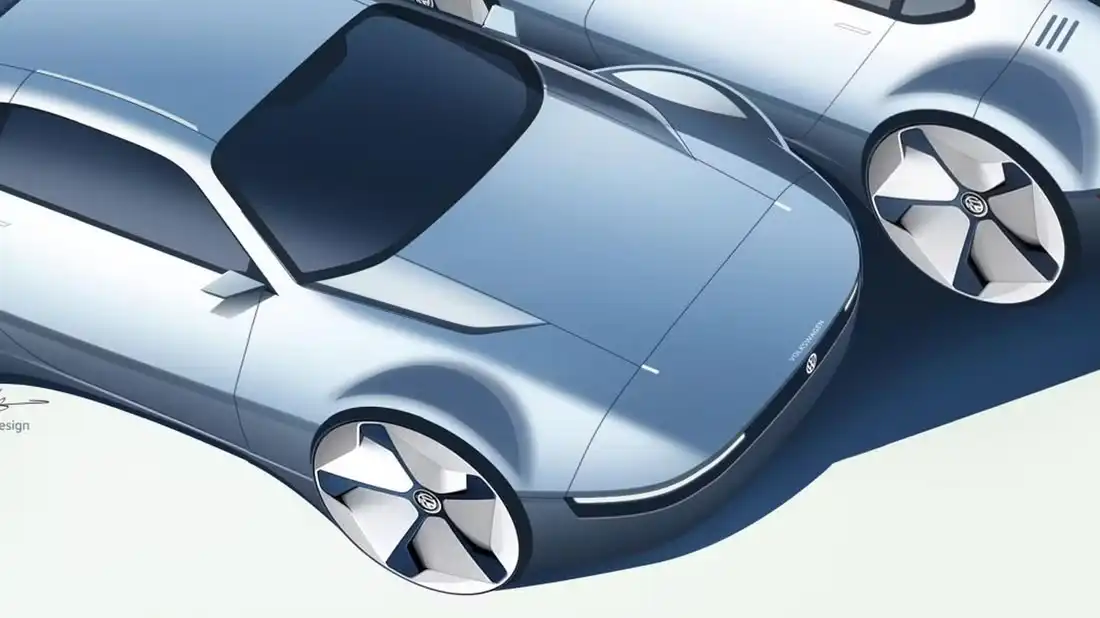
In the late 2010s, rumors swirled that Volkswagen was developing an electric sports car. However, the project never came to fruition, with the automaker instead channeling its efforts into higher-volume EVs like the ID.4 compact crossover. While VW hasn’t explained the decision, it’s likely that high development costs and low anticipated demand played a key role in shelving the idea.
Although Volkswagen never publicly confirmed plans for the electric sports car, newly uncovered design sketches may offer a glimpse of its potential look. Created in 2017 by VW designer Tibor Juhasz, the illustrations only recently surfaced through a LinkedIn post by Stepan Rehak, the automaker’s head of design communication.
Something Old, Something New, Something Borrowed, Something Blue…
In a series of posts highlighting early design explorations for VW’s ID family of electric vehicles, Rehak revealed that the sports car concept was envisioned as a high-performance ID model built on the Volkswagen Group’s MEB platform—the same architecture found in the ID.4 and ID. Buzz minivan. This likely meant a power output of around 335 horsepower, courtesy of electric motors shared with other MEB-based models.
Rehak noted that the design drew inspiration from the little-known VW SP2, a sports car sold exclusively in Brazil during the 1970s. He also credited design icon Giorgetto Giugiaro, pointing to his hallmark blend of clean surfaces and striking graphics. Interestingly, the car’s silhouette bears a notable resemblance to the Ferrari 12Cilindri introduced last year—a curious coincidence given that Ferrari also revived the SP2 name for its Monza SP2 supercar just a few years ago.
A Sibling to an Electric Audi TT?
When rumors first emerged about a VW electric sports car, many speculated it would be produced at the former Karmann plant in Osnabrück, Germany. Now under Volkswagen’s control, the facility specializes in low-volume manufacturing and currently assembles the T-Roc Cabriolet, while also handling overflow production for Porsche’s 718 Boxster and Cayman models. Thanks to its expertise in small-series assembly, the plant would have been a natural choice for producing this niche sports car.
At the time, industry rumors also hinted at a link between VW’s electric sports car project and an electric successor to the Audi TT. Like VW’s model, the Audi TT replacement was reportedly shelved, though the idea may be making a comeback soon. Audi is expected to reveal an electric sports car concept later this year, showcasing a fresh design language for the brand. This concept is believed to preview a future production model that will sit between the now-discontinued TT and the flagship R8 in Audi’s lineup.
It’s hard not to wonder how an electric sports car from VW might have been received back in the late 2010s. Beyond being pre-COVID—a period that now feels like ages ago—it was also just a few years after VW’s Dieselgate scandal rocked the industry. Could the German automaker have bounced back faster with a sleek, affordable performance EV rather than the more conventional ID.4 crossover? It’s an intriguing what-if that highlights how different VW’s EV strategy might have looked.
Though Volkswagen never brought an electric sports car to market, it did push the boundaries of EV performance with the ID.R time-attack racer. Built solely for motorsport excellence, the ID.R set a blistering Nürburgring lap record of 6:05.33 in 2019—a mark that remains the fastest lap ever recorded by an electric vehicle. While the ID.R was never intended for production, the project offered VW critical lessons in high-performance battery management, electric motor durability, and cutting-edge aerodynamic design.
